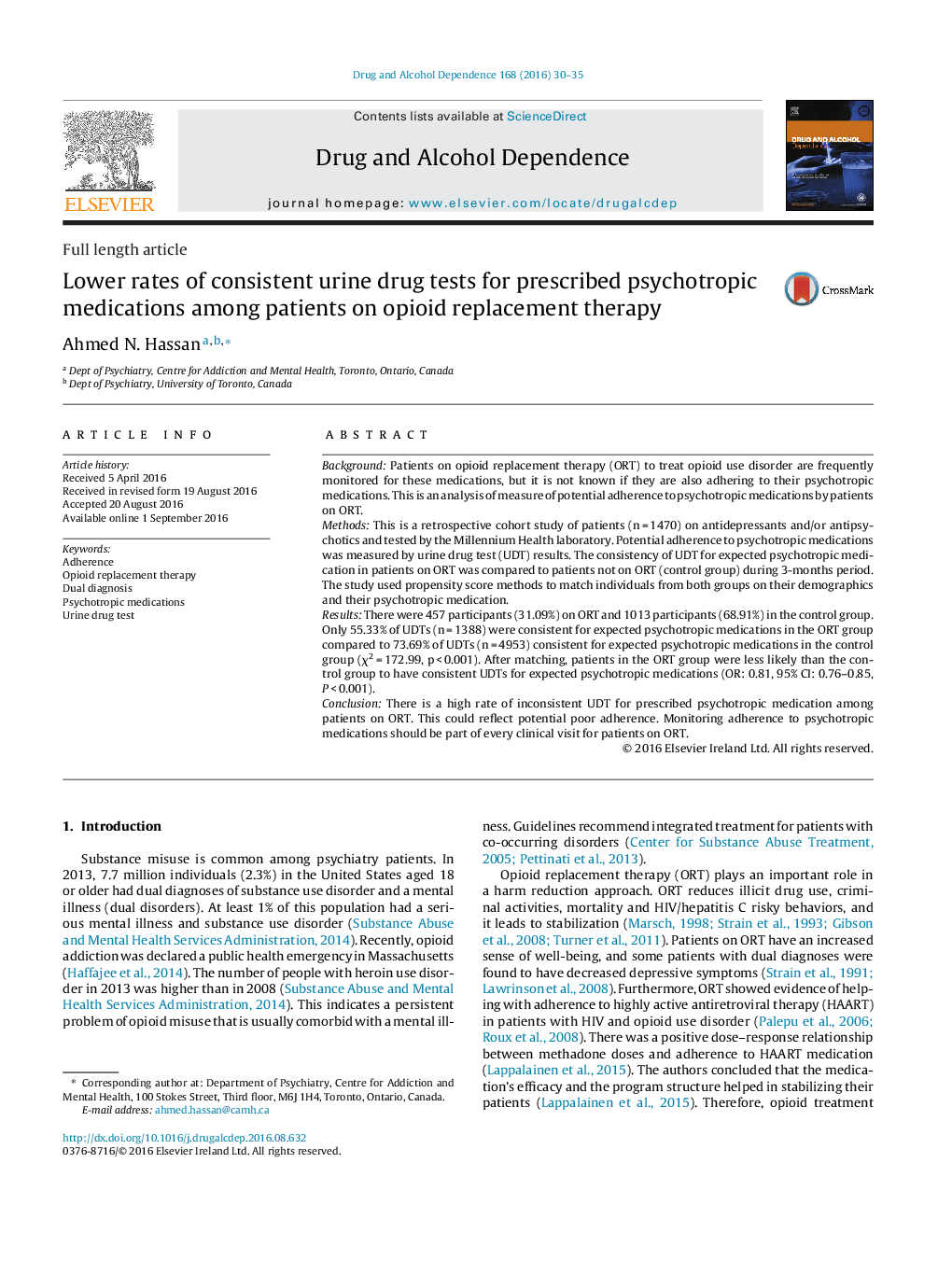| کد مقاله | کد نشریه | سال انتشار | مقاله انگلیسی | نسخه تمام متن |
|---|---|---|---|---|
| 5120445 | 1486123 | 2016 | 6 صفحه PDF | دانلود رایگان |
- The overall rate of inconsistent UDTs for expected psychotropic medication is high.
- 44.67% of UDTs were inconsistent for expected medication in patients on ORT.
- Matched patients had more consistent UDTs than patients on ORT.
- The results could reflect potential poor adherence in this population.
BackgroundPatients on opioid replacement therapy (ORT) to treat opioid use disorder are frequently monitored for these medications, but it is not known if they are also adhering to their psychotropic medications. This is an analysis of measure of potential adherence to psychotropic medications by patients on ORT.MethodsThis is a retrospective cohort study of patients (n = 1470) on antidepressants and/or antipsychotics and tested by the Millennium Health laboratory. Potential adherence to psychotropic medications was measured by urine drug test (UDT) results. The consistency of UDT for expected psychotropic medication in patients on ORT was compared to patients not on ORT (control group) during 3-months period. The study used propensity score methods to match individuals from both groups on their demographics and their psychotropic medication.ResultsThere were 457 participants (31.09%) on ORT and 1013 participants (68.91%) in the control group. Only 55.33% of UDTs (n = 1388) were consistent for expected psychotropic medications in the ORT group compared to 73.69% of UDTs (n = 4953) consistent for expected psychotropic medications in the control group (Ï2 = 172.99, p < 0.001). After matching, patients in the ORT group were less likely than the control group to have consistent UDTs for expected psychotropic medications (OR: 0.81, 95% CI: 0.76-0.85, P < 0.001).ConclusionThere is a high rate of inconsistent UDT for prescribed psychotropic medication among patients on ORT. This could reflect potential poor adherence. Monitoring adherence to psychotropic medications should be part of every clinical visit for patients on ORT.
Journal: Drug and Alcohol Dependence - Volume 168, 1 November 2016, Pages 30-35
